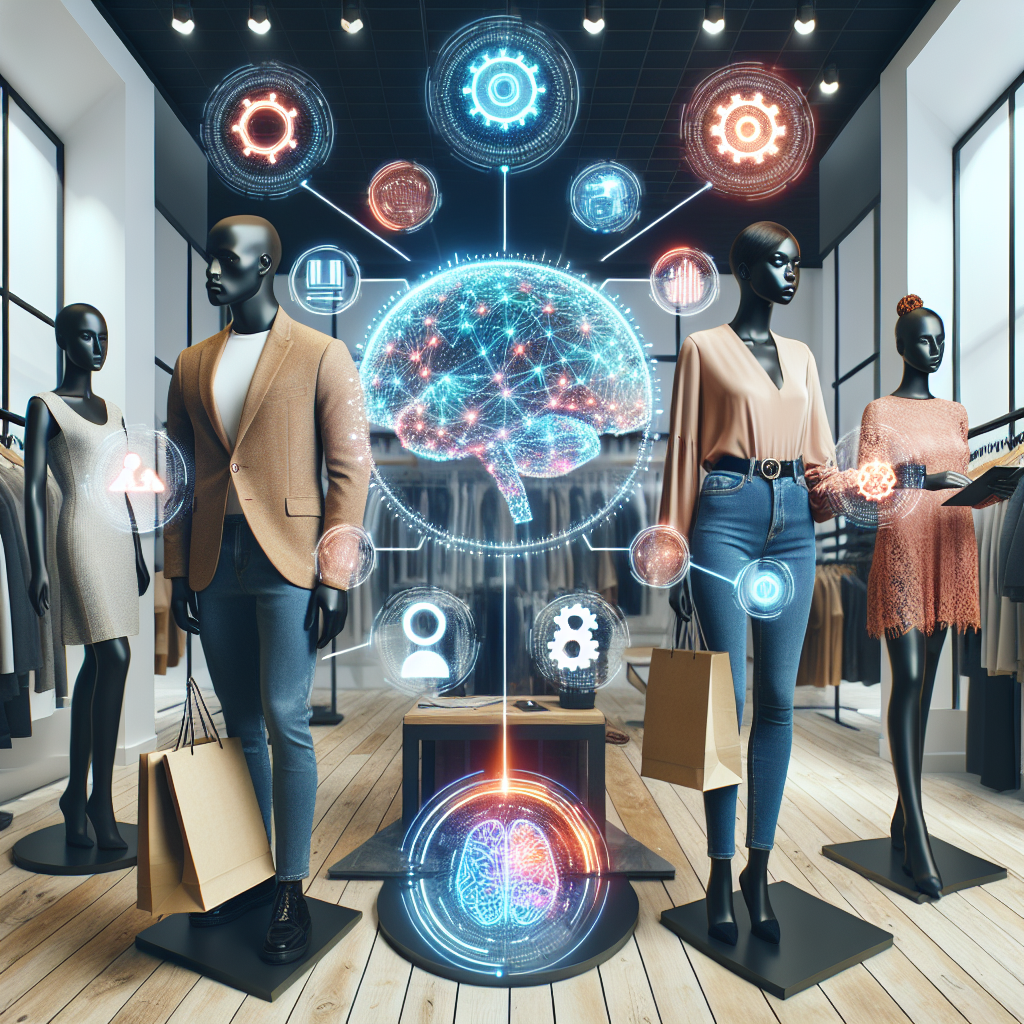Artificial Intelligence (AI) has revolutionized many industries, and fashion retail is no exception. In recent years, AI has significantly impacted the way fashion retailers analyze and understand consumer behavior, improve marketing strategies, and enhance the overall customer experience. By utilizing AI-powered tools and algorithms, fashion retailers can gain valuable insights into customer preferences, predict trends, personalize marketing campaigns, and optimize inventory management. In this article, we will explore the impact of AI on fashion retail marketing analytics and how it is shaping the future of the industry.
AI-powered tools such as machine learning algorithms, natural language processing, and computer vision have enabled fashion retailers to analyze vast amounts of data in real-time and extract meaningful insights. These tools can process data from various sources, including online and offline sales, social media, customer reviews, and website traffic, to identify patterns, trends, and correlations that traditional methods may overlook. By leveraging AI, fashion retailers can better understand customer behavior, preferences, and buying habits, allowing them to tailor their marketing strategies to meet the needs and desires of their target audience.
One of the key benefits of AI in fashion retail marketing analytics is the ability to predict trends and forecast demand more accurately. By analyzing historical sales data, social media trends, and other relevant information, AI algorithms can identify emerging styles, colors, and patterns that are likely to be popular in the future. This predictive analysis enables fashion retailers to anticipate demand, optimize their inventory levels, and reduce the risk of overstocking or understocking certain products. By having a better understanding of market trends and consumer preferences, retailers can make informed decisions about which products to promote, when to launch new collections, and how to allocate their marketing budget effectively.
Another major advantage of AI in fashion retail marketing analytics is the ability to personalize the customer experience. By analyzing customer data, such as purchase history, browsing behavior, and demographic information, AI algorithms can create personalized recommendations, promotions, and content tailored to each individual customer. This personalized approach can increase customer engagement, loyalty, and satisfaction, leading to higher conversion rates and repeat purchases. By delivering the right message to the right customer at the right time, fashion retailers can create a more seamless and enjoyable shopping experience that drives customer retention and loyalty.
AI-powered tools can also help fashion retailers optimize their marketing campaigns and improve their return on investment. By analyzing customer data and campaign performance metrics, AI algorithms can identify which marketing channels, messages, and strategies are most effective in driving sales and engagement. This data-driven approach enables retailers to allocate their marketing budget more efficiently, target the right audience with the right message, and optimize their marketing campaigns in real-time based on performance feedback. By continuously analyzing and optimizing their marketing efforts, fashion retailers can achieve higher conversion rates, lower customer acquisition costs, and increased revenue.
In addition to enhancing marketing strategies, AI can also improve the overall customer experience in fashion retail. By implementing AI-powered chatbots, virtual stylists, and personalized recommendations, retailers can provide customers with personalized assistance, style advice, and product suggestions, enhancing their shopping experience and increasing their satisfaction. AI-powered tools can also help retailers streamline their operations, optimize their supply chain, and improve inventory management, leading to faster delivery times, lower costs, and better customer service. By leveraging AI technology, fashion retailers can create a more efficient, personalized, and seamless shopping experience that drives customer loyalty and satisfaction.
In conclusion, AI has had a significant impact on fashion retail marketing analytics, enabling retailers to analyze data more effectively, predict trends more accurately, personalize marketing campaigns more efficiently, and enhance the overall customer experience. By leveraging AI-powered tools and algorithms, fashion retailers can gain valuable insights into customer behavior, improve marketing strategies, and optimize their operations, leading to increased sales, customer loyalty, and business success. As AI continues to evolve and become more sophisticated, its impact on fashion retail marketing analytics is only expected to grow, shaping the future of the industry and driving innovation and growth.
FAQs:
Q: How does AI help fashion retailers analyze customer data?
A: AI-powered tools such as machine learning algorithms can process vast amounts of customer data from various sources, including online and offline sales, social media, customer reviews, and website traffic, to identify patterns, trends, and correlations that traditional methods may overlook. By analyzing customer data, retailers can gain valuable insights into customer behavior, preferences, and buying habits, enabling them to tailor their marketing strategies to meet the needs and desires of their target audience.
Q: How does AI help fashion retailers predict trends and forecast demand?
A: By analyzing historical sales data, social media trends, and other relevant information, AI algorithms can identify emerging styles, colors, and patterns that are likely to be popular in the future. This predictive analysis enables retailers to anticipate demand, optimize their inventory levels, and reduce the risk of overstocking or understocking certain products. By having a better understanding of market trends and consumer preferences, retailers can make informed decisions about which products to promote, when to launch new collections, and how to allocate their marketing budget effectively.
Q: How does AI help fashion retailers personalize the customer experience?
A: By analyzing customer data, such as purchase history, browsing behavior, and demographic information, AI algorithms can create personalized recommendations, promotions, and content tailored to each individual customer. This personalized approach can increase customer engagement, loyalty, and satisfaction, leading to higher conversion rates and repeat purchases. By delivering the right message to the right customer at the right time, retailers can create a more seamless and enjoyable shopping experience that drives customer retention and loyalty.

